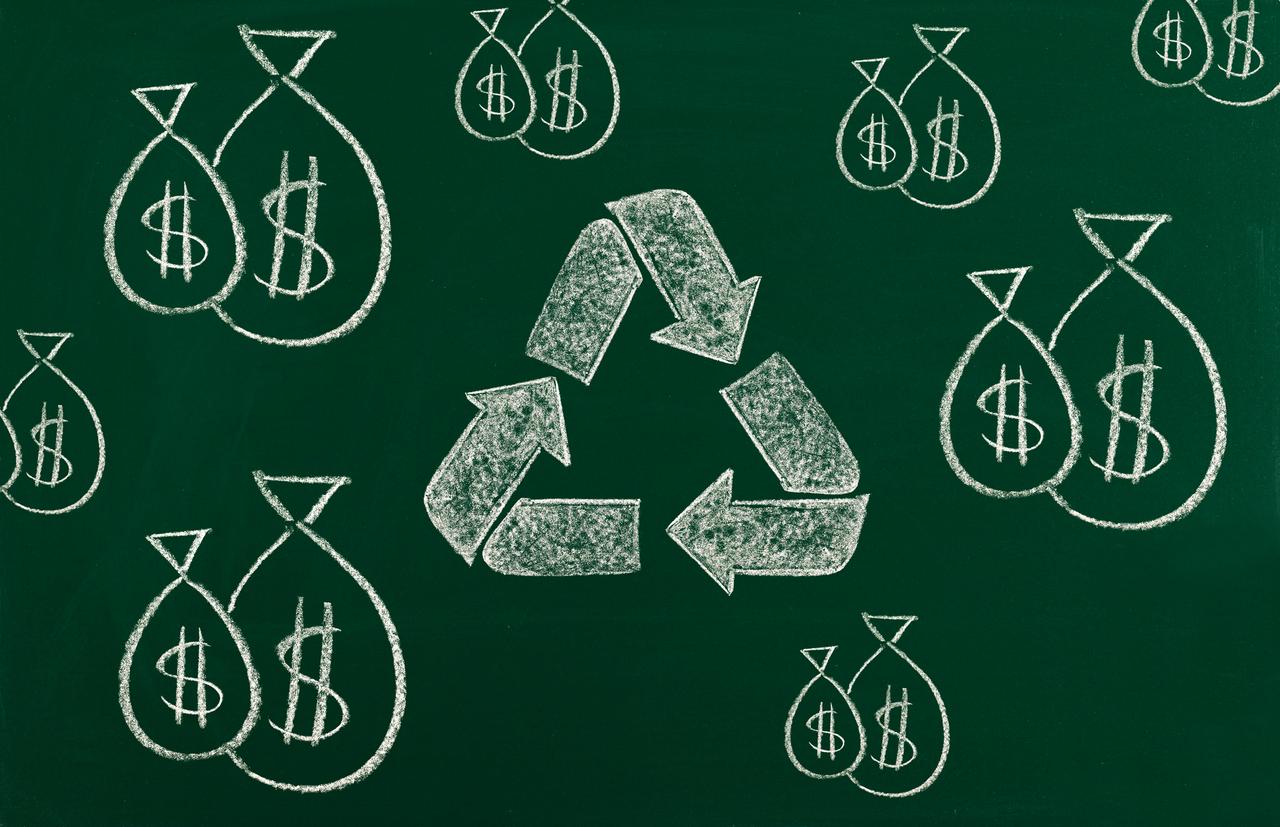

Percentage of Baby Boomer respondents who say they are unconcerned with the additional packages they’ve received from e-commerce and more likely than younger generations to say you can never have too many boxes lying around. About 28% of all consumers say it’s a constant reminder they are shopping online too much.
Percentage of survey respondents who put the responsibility to recycle their boxes on themselves, with the rest saying sustainability falls on the companies that make the products packaged in the boxes (34%) or recycling services in their local communities (33%).
Photo courtesy of Getty Images / Rost-9D
Source: DS Smith survey, conducted online April 1-5, 2021, among 1,020 Americans who have the same amount or more boxes lying around from online shopping compared to pre-pandemic. Margin of error is plus or minus three percentage points.
Baby Boomers are most eager to recycle, but all groups want packages made of sustainable materials
How do American consumers feel about all the boxes that have accrued during the pandemic-induced push to online shopping? According to a nationwide DS Smith survey, Baby Boomers—the generation that came of age amid the first Earth Day in 1970—are the most motivated to recycle those leftover boxes. The global packaging provider also discovered that the majority of consumers (57%) don’t mind the extras, because “you can never have too many boxes” for reshipping, storage and other purposes.
Boomers outpaced all other generations in taking responsibility for recycling. But all groups were united when asked about the surplus of boxes from e-commerce spending, and the message was clear: They’re not bothered by the extra packages but do want them made of sustainable materials.
Approximately 44% of those surveyed report getting more shopping deliveries during the COVID-19 pandemic, with 15% saying they are “drowning in boxes.”
“As consumers increasingly turn to e-commerce, they don’t want to feel guilty about the packaging that comes along with it,” says Mark Ushpol, managing director of the North America Packaging Division for DS Smith. “They want packaging that is sustainable, and corrugated boxes made from renewable fiber are reusable and recyclable, helping businesses and consumers tackle those challenges and feel good about their choices.”
Broken out by generation, Baby Boomers (71%) hold themselves more accountable for responsibly recycling their boxes than others—millennials (60%), Gen Z (59%) and Gen X (58%).
Despite the eagerness of many groups to say they recycle, the U.S. lags behind most of the developed world with less than 35% of its overall waste recycled—a rate that has remained static since 2005. And the residential recovery rate for corrugated boxes remains between 30% and 40% as compared with a 95% commercial recovery rate, indicating there is room for improvement, especially as 89% of consumers report receiving more or the same number of boxes since the pandemic began.
In its own operations, DS Smith supports a circular economy that aims to reduce and eliminate waste, and advocates for the reuse of materials, including its “box-to-box in 14 days” model that ensures boxes are collected, recycled and turned into new boxes within two weeks.
The company’s purpose is to “Redefine Packaging for a Changing World,” and as part of its “Now and Next Sustainability Strategy” and commitment to the circular economy, the company by 2030 will use packaging and recycling to replace problem plastics, reduce customer carbon and eliminate consumer packaging waste.
“It’s not enough to know what is happening ‘one step forward and one step back.’ Processors must understand what is in place at points further back and ahead.”
— John Rowley, vice president, Global Food Division, NSF International, on supply chain management

Photo courtesy of Getty Images / Aluxum
